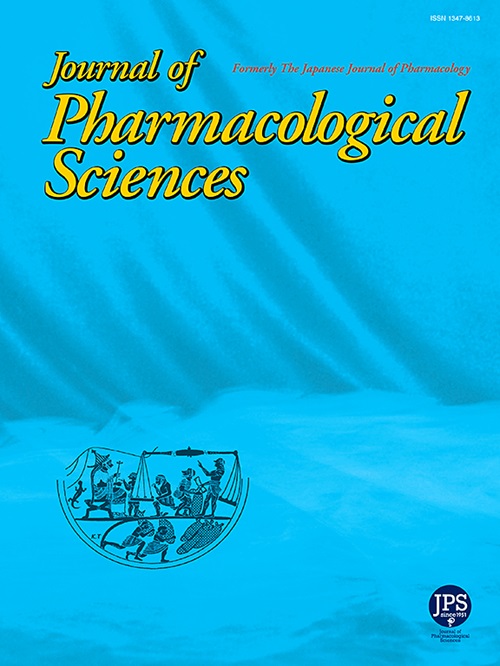Targeting enteric glial CRF-R1/Cx43 attenuates stress-induced accelerated colonic motility
IF 2.9
3区 医学
Q2 PHARMACOLOGY & PHARMACY
引用次数: 0
Abstract
Stress triggers disorders in accelerated peristalsis, with corticotropin releasing factor receptor 1 (CRF-R1) playing a pivotal role. Enteric glia cells (EGCs) and glial Cx43 are known to influence gastrointestinal motility, yet their involvement in colonic motor responses to stress remains unclear. Using immunofluorescence and single-cell RNA sequencing data, we identified CRF-R1 expression in EGCs. Male C57BL/6 mice subjected to wrap restraint stress (WRS) revealed stress-induced colonic motility changes. By employing Fluoroacetate, NBI 27914, and Gap26, we elucidated the impact of glial CRF-R1/Cx43 on stress-induced colonic motor responses. Our study demonstrated CRF-R1 expression in EGCs of the small intestine and colon, along with elevated CRF levels and upregulated CRF-R1 in the distal colon under stress. Antagonizing CRF-R1 and disrupting EGC function made mice resistant to colonic stress responses. Mechanistically, increased glial Cx43 expression and activity influenced colonic motor responses in a CRF-R1-dependent manner. Our findings highlight the role of EGC-derived CRF-R1 in stress-induced colonic motor responses via Cx43 activation. Targeting CRF-R1/Cx43 signaling in EGCs may offer a promising approach to mitigate stress-induced colonic transit changes.

靶向肠胶质细胞CRF-R1/Cx43可减弱应激诱导的加速结肠运动
应激触发加速蠕动紊乱,促肾上腺皮质激素释放因子受体1 (CRF-R1)起关键作用。肠神经胶质细胞(EGCs)和神经胶质细胞Cx43影响胃肠运动,但它们在结肠运动应激反应中的作用尚不清楚。利用免疫荧光和单细胞RNA测序数据,我们鉴定了EGCs中CRF-R1的表达。包裹约束应激(WRS)下雄性C57BL/6小鼠出现应激性结肠运动改变。通过氟乙酸、NBI 27914和Gap26,我们阐明了胶质细胞CRF-R1/Cx43对应激诱导的结肠运动反应的影响。我们的研究表明,在应激条件下,小肠和结肠EGCs中CRF- r1表达升高,远端结肠中CRF- r1表达上调。拮抗CRF-R1和破坏EGC功能使小鼠对结肠应激反应产生抗性。在机制上,增加的胶质细胞Cx43的表达和活性以依赖于crf - r1的方式影响结肠运动反应。我们的研究结果强调了egc衍生的CRF-R1通过激活Cx43在应激诱导的结肠运动反应中的作用。靶向EGCs中的CRF-R1/Cx43信号可能为减轻应激诱导的结肠转运改变提供了有希望的方法。
本文章由计算机程序翻译,如有差异,请以英文原文为准。
求助全文
约1分钟内获得全文
求助全文
来源期刊
CiteScore
6.20
自引率
2.90%
发文量
104
审稿时长
31 days
期刊介绍:
Journal of Pharmacological Sciences (JPS) is an international open access journal intended for the advancement of pharmacological sciences in the world. The Journal welcomes submissions in all fields of experimental and clinical pharmacology, including neuroscience, and biochemical, cellular, and molecular pharmacology for publication as Reviews, Full Papers or Short Communications. Short Communications are short research article intended to provide novel and exciting pharmacological findings. Manuscripts concerning descriptive case reports, pharmacokinetic and pharmacodynamic studies without pharmacological mechanism and dose-response determinations are not acceptable and will be rejected without peer review. The ethnopharmacological studies are also out of the scope of this journal. Furthermore, JPS does not publish work on the actions of biological extracts unknown chemical composition.

 求助内容:
求助内容: 应助结果提醒方式:
应助结果提醒方式:


